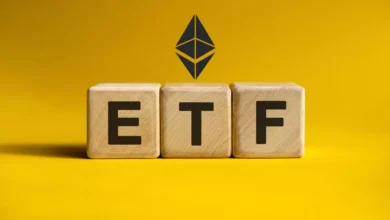The Dark Side of ERC-20- A Breeding Ground for Crypto Scams

The Ethereum network, a pioneer in the cryptocurrency world, is home to ERC-20 tokens – a widely used standard for creating and exchanging digital assets. While ERC-20 tokens have driven innovation in decentralized finance (DeFi), a major downside has emerged- their vulnerability to scams. Here is a look at the technical aspects of ERC-20 that make them susceptible to exploitation and the ongoing debate on how to address these security challenges.
Innovation with Inherent Flaws- A Double-Edged Sword
ERC-20 tokens offer a convenient way to create new cryptocurrencies on the Ethereum blockchain. However, their design includes inherent flaws that scammers can leverage. Two critical functions within the ERC-20 standard, approve and its successors increaseAllowance and permit, have become targets for malicious actors.
The approve function allows users to grant permission for DeFi applications (DApps) to spend a specific amount of their tokens. While intended to streamline interactions, it creates vulnerability. Malicious actors can trick users into approving a larger amount than intended, potentially draining their entire wallet.
The introduction of increaseAllowance and permit was intended to address the limitations of approval. However, these updates inadvertently created new ways for exploitation. Phishing scams now target these functions, luring users into unknowingly permitting attackers to steal their tokens.
The Blockchain’s Immutable Curse- Challenges in Fixing the Problem
The very nature of blockchain technology – its immutability – poses a significant challenge in fixing these flaws. Once deployed, smart contracts on the blockchain cannot be altered. This means existing ERC-20 tokens with vulnerabilities remain susceptible to scams.
While some workarounds exist, like upgradable proxies or intermediary contracts, they are not a perfect solution. These approaches require additional development effort and may not be feasible for all existing tokens.
The Human Factor- Social Engineering and the Crypto OG Trap
While the technical flaws in ERC-20 design contribute to the rise of scams, social engineering tactics are a significant factor. Attackers exploit human psychology, using sophisticated methods to deceive even experienced crypto users.
Real-world examples illustrate this vulnerability. Even crypto natives like Necksus, a crypto miner, and Larry the Cucumber, co-founder of a DeFi platform, have fallen victim to phishing scams targeting ERC-20 functionalities. These incidents highlight the need for enhanced user education and awareness.
A Divided Response- Fixing the Standard vs. Empowering Users
The debate on how to address ERC-20’s security challenges continues. Some experts, like Mikhail Vladimirov, an Ethereum developer, believe social engineering is the primary culprit. They advocate for improved security tools and user education to combat these scams.
Others, like Mikko Ohtamaa, a DeFi expert, argue for a more fundamental approach. They believe a reevaluation of the ERC-20 standard itself is necessary to eliminate inherent vulnerabilities and focus on user protection.
The battle between innovation and security is ongoing in the world of ERC-20 tokens. While a definitive solution remains elusive, crypto users can take steps to safeguard themselves. For instance, it helps to double-check website addresses and transaction details before signing approvals. It is also advised to consider browser extensions and mobile apps like WalletGuard and Pocket Universe that can scan URLs for possible risks associated with phishing scams.
It may also help to stay updated on the latest scam tactics and educate yourself on secure practices for interacting with ERC-20 tokens and DeFi applications.
https://cointelegraph.com/magazine/phishing-crypto-erc-20-bait-scammers/
https://grafa.com/news/ethereum-s-erc-20-tokens-vulnerabilities-fuel-scammer-s-tactics-203148




